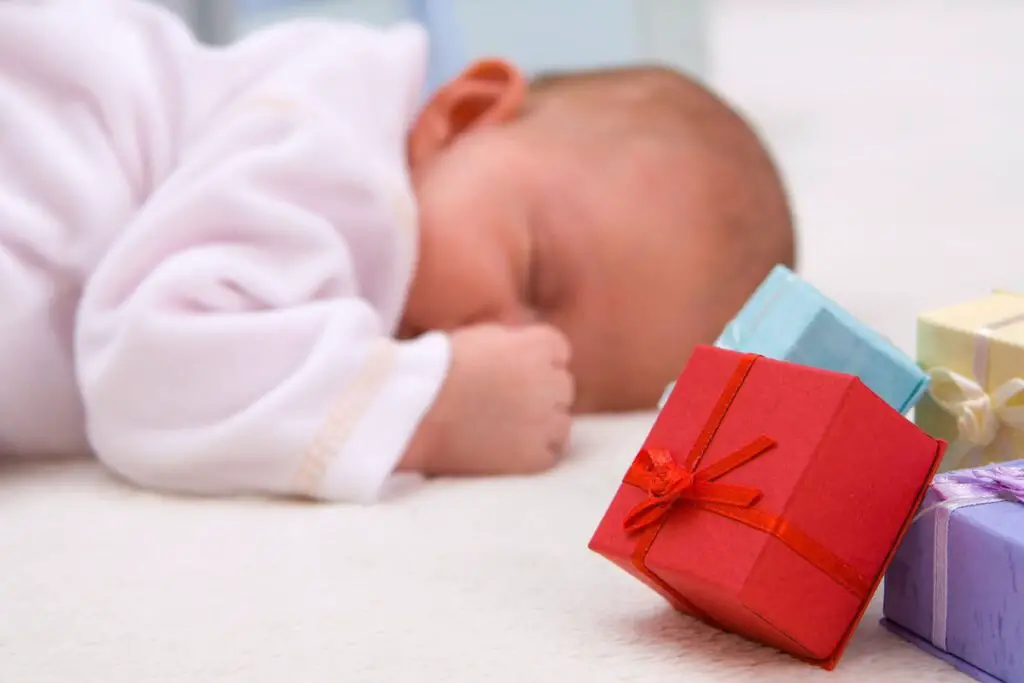Sometimes you may hear the term, “Christmas Came Early.” For some non-English speakers, it can be confusing to understand precisely what somebody means when they say “Christmas Came Early.”
“Christmas Came Early” implies that something good has happened. It could be something financial, spiritual, or even just good news. People will use this idiom in all types of ways to show that something good or something extraordinary has just happened.
Table of Contents
- Meaning Of “Christmas Came Early”
- Ways That Christmas Can Come Early
- Variations Of Christmas Came Early
- 10 Reasons Why Christmas is an Important Holiday for Most of the World
- Frequently Asked Questions
- Related Questions
Meaning Of “Christmas Came Early”
The idiom “Christmas Came Early” means you had some happy surprise. It can be all different types of surprises, and it does not have to have anything, in particular, to do with Christmas or the Christmas holidays. It can be a material, spiritual, physical, or festive surprise, any type of surprise that you consider lovely.
The Urban Dictionary defines Christmas Came Early as:
1. When a happy suprirse arrives before Christmas, like a hot new date, awesome gift or magical experience.
Urban Dictionary
2. Christmas-like experience — be it material, spiritual or festival — hapening ahead of schedule.
“Christmas Came Early” can have anything to do with anything that you consider lovely or great.
The truth is that it does not have to be something that happens before Christmas, though it often refers to something that happens before Christmas. I have heard this idiom spoken throughout the year.
It essentially just means that something good or great has happened or somebody has received a bonus or surprise or something good they were not expecting.
It usually has to do with some gift. That is because Christmas is a time when we give gifts.
So when someone says that “Christmas Came Early,” it means they received some gift they were not expecting. So Christmas coming or early is also an unexpected gift or something you were not expecting.
Ways That Christmas Can Come Early
There are so many different ways that Christmas can come early. And there are so many ways people may use the idiom “Christmas Came Early.”
Christmas Came Early, And Child Birth

One way that “Christmas Came Early” has also been used in childbirth is when a child is to be born around Christmas time. If the child comes earlier than Christmas Day, they may say, “Christmas came early“
A lot of time, this will be used if the baby was born within a week or two of Christmas and they were expecting the baby to be born on Christmas day or even after Christmas day.
Unexpected Financial Windfall

Another way may be an unexpected financial windfall. Maybe someone received a Christmas bonus that they were not expecting. Or they got a check in the mail that they were not expecting.
The main point is that somebody receives something they were not expecting or something more significant or extraordinary than they were expecting. An element in Christmas that came early is a surprise, something you were not expecting.
You could also have a deal with some business ventures. For example, if you are in business and suddenly receive an order you were not expecting, you might say, “this is wonderful. Christmas has come early.”
Hearing Great News

The “Christmas came early” could also refer to hearing some great news or news you were not expecting. Let’s say, for example, that you have cancer and you go to the doctor sometime before Christmas, and the doctor tells you the good news that your cancer is clear.
People often say, “oh, Christmas is coming early; that’s great news.”
It could also be that you have an unexpected friend or family member visit you that you were not expecting, and you might then say, “oh, Christmas, come early; wonderful to see you.”
Variations Of Christmas Came Early
One of the variations you may sometimes hear is when someone says, “Christmas Came Early’ they may also say, “Santa Came Early.” Even though they are two different idioms, they essentially mean the same thing.
Whether someone says, “Christmas Came Early” or “Santa Came Early,” they imply something outstanding has just happened, especially something completely unexpected.
10 Reasons Why Christmas is an Important Holiday for Most of the World
The festive spirit of Christmas reverberates globally, transcending borders and cultures. Why does December 25th hold such a unique place in the hearts of people worldwide?
Here are ten reasons elucidating the universal significance of Christmas:
- Religious Significance: For Christians, Christmas is the celebration of the birth of Jesus Christ, the savior in Christian theology. This foundational event marks God’s intervention in human affairs, making it a crucial day for believers.
- Universal Themes of Hope and Joy: Christmas themes resonate universally regardless of religious beliefs. Messages of hope, peace, goodwill, and the promise of a new beginning strike a chord in almost every heart.
- Family and Togetherness: Christmas is synonymous with family reunions. It’s a time when many make an effort to be with loved ones, emphasizing the importance of family and togetherness.
- Tradition of Giving: The act of exchanging gifts emulates the Three Wise Men who gave gifts to baby Jesus. This tradition has grown to symbolize love, generosity, and gratitude – values cherished by societies worldwide.
- Feast and Festivities: Culinary delights form a central part of Christmas celebrations. From the traditional Christmas turkey to mince pies, and from panettone to tamales, diverse cultures offer a smorgasbord of festive treats.
- Cultural Integration: Over centuries, Christmas has absorbed numerous cultural elements. From the Nordic Yule log to the British Christmas tree, and from Mexico’s poinsettia to India’s star lanterns, Christmas has become a tapestry of global traditions.
- Economic Impact: The holiday season, led by Christmas, is vital for businesses worldwide. Retailers, artisans, and service providers often depend on this season’s sales, making Christmas crucial from an economic standpoint.
- Charity and Compassion: Christmas is a time when many are reminded of the less fortunate. Charitable acts, from donating to shelters to participating in community meals, become more pronounced, highlighting humanity’s compassionate side.
- Music and Arts: Christmas has inspired countless artworks, music, films, and literary works. Classics like “A Christmas Carol” by Charles Dickens or songs like “White Christmas” by Irving Berlin underline the holiday’s influence on arts and culture.
- Symbol of Unity: Christmas is a beacon of unity in a world often rife with divisions. Streets illuminated with lights, songs of joy filling the air, and the shared spirit of festivity bind communities together, emphasizing our shared humanity.
Christmas is more than just a day on the calendar. It’s an amalgamation of history, culture, faith, and human values that culminate in a celebration cherished by people from all walks of life. Whether one revels in its religious significance or simply the joy it brings, Christmas undoubtedly holds a special place in the global heart.
Frequently Asked Questions
What does the phrase “Christmas Came Early” mean?
The phrase “Christmas Came Early” signifies that something positive, fortunate, or extraordinary has occurred. It’s used to convey the idea of receiving good news or experiencing a favorable event.
Is “Christmas Came Early” related only to the holiday season?
No, the expression is not limited to the holiday season. While it uses the imagery of Christmas, it can be used throughout the year to describe any unexpected or joyful occurrence.
Can “Christmas Came Early” refer to material gifts or surprises?
Yes, it can refer to material gifts, financial gains, or any positive surprises. The phrase is often used metaphorically to describe a variety of fortunate events.
How is the phrase typically used in conversation?
It’s used to express excitement or surprise about something positive that has happened. For instance, if someone gets a job offer they weren’t expecting, they might say, “I got the job! Christmas came early for me this year!”
Is “Christmas Came Early” used in formal writing or more in informal speech?
It’s more commonly used in informal speech, conversations, and casual writing. In formal writing, other expressions may be more appropriate.
Can “Christmas Came Early” refer to personal achievements or milestones?
Yes, it can refer to personal achievements, milestones, or even positive emotional experiences. For example, someone might say, “My book got published! It feels like Christmas came early!”
Does the phrase always refer to something significant or can it be used for small positive events too?
The phrase can be used for both significant and small positive events. Its usage depends on the context and the level of excitement the speaker wants to convey.
Is the phrase used differently in different cultures or languages?
While the concept of unexpected joy is universal, the specific expression “Christmas Came Early” might not exist in other languages. Different cultures may have their own idioms to convey a similar idea.
Can “Christmas Came Early” be used sarcastically or ironically?
Yes, it can be used sarcastically or ironically to highlight the unexpectedness of a not-so-positive event. For example, if someone receives an unexpected bill, they might jokingly say, “Oh great, Christmas came early this year.”
Are there any synonyms or similar expressions to “Christmas Came Early”?
Yes, similar expressions include “a blessing in disguise,” “a stroke of luck,” “a pleasant surprise,” or “out of the blue.” These phrases all convey the idea of something positive happening unexpectedly.
At A Bus On A Dusty Road, we talk about travel, life, and ex-pat living. We are all about “Living Life As A Global Citizen.” We explore social, cultural, and economic issues and travel.
We would love to have you be part of our community. Sign up for our newsletter to keep up-to-date by clicking here. If you have any questions, you can contact me, Anita, by clicking here.
Listen to our Podcast called Dusty Roads. You can find it on all major podcast platforms. Try out listening to one of our podcasts by clicking here.
Subscribe to our A Bus On A Dusty Road YouTube Channel with great videos and information by clicking here.
Related Questions
Norway, Denmark, And Sweden Celebrate Christmas On December 24th.
Norway, Denmark, and Sweden celebrate Christmas on December 24 because Christmas day was permanently reserved as a holy day. The Scandinavians also celebrate on the eve of a holy day and not on the holy day itself. Many Scandinavians would attend a church service mass on Christmas morning.
By clicking here, you can discover Norway, Denmark, And Sweden Celebrate Christmas On December 24th.
Pho In America And Pho In Vietnam – Differences Explained
The iconic Vietnamese noodle soup known as Pho is not the same in America as in Vietnam. One of the significant differences in the freshness of the ingredients you can get in Vietnam versus what you can find in America. The freshness in Vietnam is from everything as the rice noodles, vegetables, herbs, limes, spices, and even the bone broth make a difference in the final taste of the Vietnamese pho soup.
By clicking here, you can discover Pho In America And Pho In Vietnam – Differences Explained.
How Cold Is Winter In Hanoi, Vietnam?
Winters in Hanoi can get quite cold, especially on a few days during the winter when it rains and the temperatures drop. The houses in Hanoi do not have central heating, so it can feel colder in your home than outside. During the wintertime, the temperature can change daily and week to week.
By clicking here, you can discover How Cold Is Winter In Hanoi, Vietnam?.

